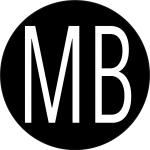For each of the criteria for evaluation, I refrained from providing long lists that support each criterion. I have chosen to let the included vitae, course evaluations, and observations speak for themselves regarding my activities, and spend time reflecting on my current status for each criteria and provide a direction for how I see each criteria evolving in the future. More specifically, I intend to use the Plus-Delta-Rx method for reflection. This is the reflective process I asked my students to use when analyzing their own teaching practice. In this method, “plus” represents the elements of each criterion that I have found to be successful over the past six years. “Delta” will represent the elements within each criterion that are in need of some sort of change. For each “delta” provided I will also provide an “Rx”, or a prescription as to how each delta could be improved.
Plus. Exposure. Over the past six years I have been accepted by and made presentations at over 27 state, national, and international conferences with agencies and organizations deeply connected to teacher education. This is something for which I am tremendously proud. As a department with only four full-time faculty members, we all assume additional responsibilities that are typically not a part of a professor’s duties in larger programs and departments. Being recognized this many times on state, national, and international levels is a testament to the hard work that my colleagues and I have put into our scholarship. It is also significant to note the level of collaborative scholarship in which our department has participated. This collaborative work has served as the jumping off point for curriculum revisions within our department, submissions to publications, and the development of a highly supportive intellectual community. Typically, faculty members must rely on connections with other faculty at distant institutions for collaborative and critical feedback. We have developed a culture of scholarship within our department that challenges, supports, and celebrates our academic work on a daily basis.
This departmental support has been extremely beneficial in another area of my scholarship activity – Specialty Program Area (SPA) reports. These reports are components of the national accreditation process that our department is required to seek. Our department is currently nationally recognized by the National Council for the Accreditation of Teacher Education or NCATE. I developed three programmatic reports that detailed the curricular and assessment scope and sequence of our department’s programs: Integrated Language Arts (submitted to the National Council of Teachers of English), Integrated Social Studies (submitted to the National Council for the Social Studies), and Integrated Mathematics (submitted to the National Council of Teachers of Mathematics). Each of these three national associations submitted my report to a blind peer review panel to determine if, and to what extent, each program meets the national disciplinary standards for pre-service teacher education. This review process is extremely rigorous. Depending on the association there is an average acceptance range of 27-38% upon initial submission. Currently, all three of my programs have been given national recognition. The programs in mathematics and social studies were granted national recognition without conditions. The program in language arts was recognized with conditions, and I have submitted my revisions to the National Council of Teachers of English for a final review. We will be notified in February as to its status. The work for these reports is tedious, time-consuming, and essential to the long-term effectiveness and viability of our programs.
Delta and Rx. Previous review committees have encouraged me to be more specific in defining my scholarship and research trajectory. The two central themes in my scholarship and research are instructional technology and experiential learning. Taken separately, these two lines of inquiry appear quite separate. My intention in pursuing these lines is more clearly defined as the exploration of innovative pedagogies. Experiential learning methodologies and the deployment of instructional technology are two significant ways in which teachers can innovate their teaching practice. Most recently, I have been very focused in using innovative pedagogy to describe my work and have seen more colleagues and students make deeper connections to what I do because of it. The review committee was spot-on in their analysis that there needed to be more of an overarching theme and connection to the work that I have been doing.
Looking forward, I am excited to continue the conversation around innovative pedagogy. I plan to continue my pursuit of state, national, and international conferences, but I am interested in bringing my research and scholarship to new audiences. Targeting innovative pedagogical practice through the use of experiential and technological methodologies opens new doors and allows me to define my work within a broader context. While I enjoy sharing my work with other tech-based educators and experiential learning developers, I am even more excited at the prospect of working with educators and teacher educators interested in innovative practices of all kinds.
As discussed above, my participation in the accreditation process is essential to our department, but the time and attention required for that kind of academic work takes away from the time and attention one can put into other scholarly practice. Some administrative restructuring in our department has lightened my load with accreditation, but active engagement in this process by all faculty is still a reality of this position and of a department our size. There will simply be times when the accreditation work has to come first. Looking forward, I hope that those moments become fewer and farther in-between.
